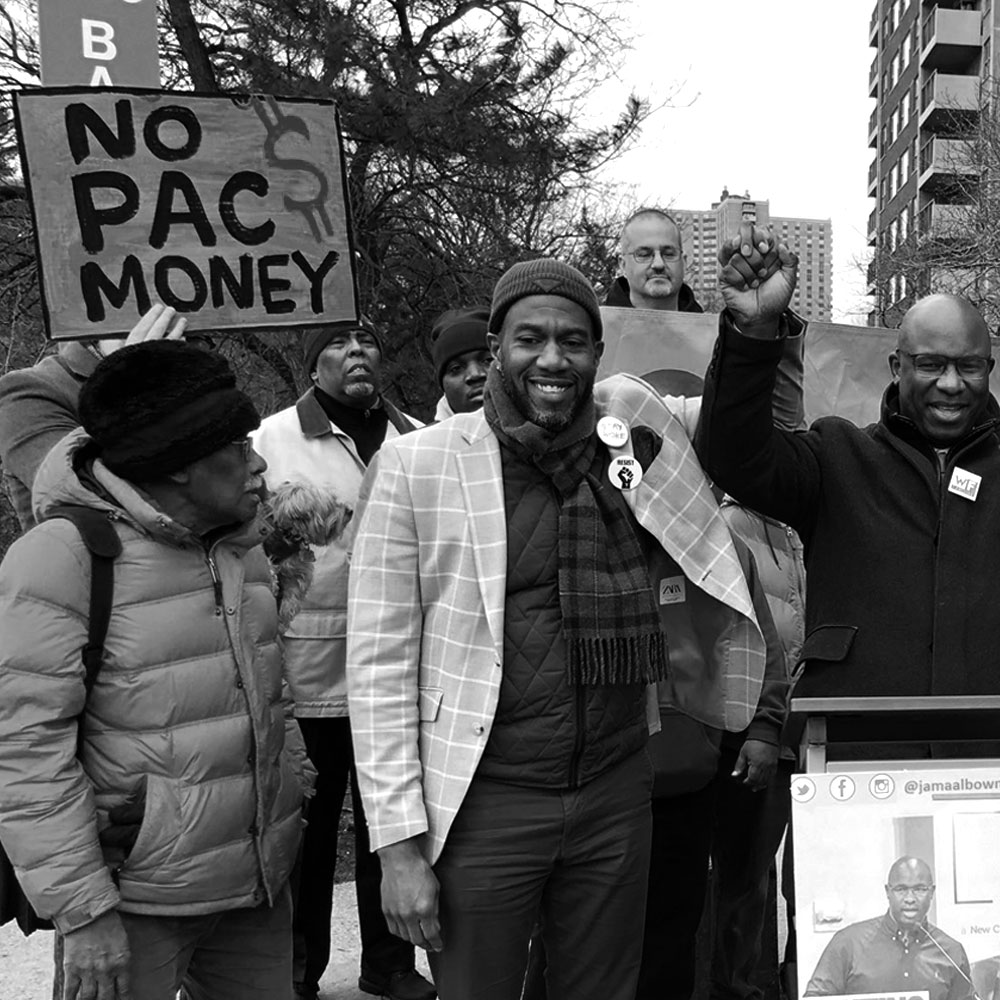Georgia Working Families Power Releases Their Economic Mobility Mandate
On August 25, 2025, Georgia Working Families Power, released their Economic Mobility Mandate, a policy platform anchoring campaigns.
Each Georgia Working Families Party-endorsed candidate has stepped up to sign the mandate, committing to prioritize affordable housing, worker protections, community-centered public safety and economic justice policies that benefit working families over corporate interests.
The mandate centers economic mobility through five key pillars — with equity, access, and community power at the core.
Pillar 1: Housing & Community Stability
Economic mobility starts with the right to stay and thrive in your community.
- Increase affordable housing and prevent displacement through rent control, tenant protections, and lower AMI thresholds.
- Support land trusts, co-ops, flexible zoning, and audit housing programs for equity and access.
- Require Community Benefits Agreements and stop public land giveaways without inclusive input.
- Ensure ADA-compliant housing and infrastructure to support disabled residents’ independence and participation.
Pillar 2: Public Safety & Community Well-Being
Invest in care, not punishment, to ensure safe, thriving neighborhoods for all.
- End arrests for misdemeanors, eliminate anti-Black ordinances, and fund violence interruption programs.
- Reject militarized policing and surveillance targeting marginalized communities.
- Guarantee sanctuary protections, end ICE collaboration, and ensure safe city services for immigrants.
- Expand mental health care, harm reduction, and clean energy solutions to support health and sustainability.
Pillar 3: Jobs, Wages & Economic Justice
Build a just economy where workers, not corporations, come first.
- Support union jobs, local businesses, co-ops, returning citizens, and city hiring equity.
- Reject privatization of public services and pass a living wage for city workers.
- Use fair taxation on the wealthy to invest in workforce development and social programs.
- Prioritize disabled residents in hiring and workforce development strategies.
Pillar 4: Government Transparency & Civic Power
A responsive government accountable to the people—not profit or corruption.
- Make budgets, contracts, and lobbying activity fully public and use tech to track spending and prevent fraud.
- Avoid unethical vendors and protect constituent privacy and data.
- Expand voting access, defend civic rights, and involve community and disabled-led organizations in planning and policy.
Pillar 5: Health, Access & Environmental Justice
A city where every resident can live well—physically, mentally, and environmentally.
- Ensure clean water, green energy, and lead-free environments in schools and homes.
- Expand mental health care, reentry support, and access to healthy, culturally relevant food in public institutions.
- Fund community-based disability services including mental health, mobility, communication, and emergency preparedness.
- Provide full accessibility across all public services, programs, and infrastructure.

